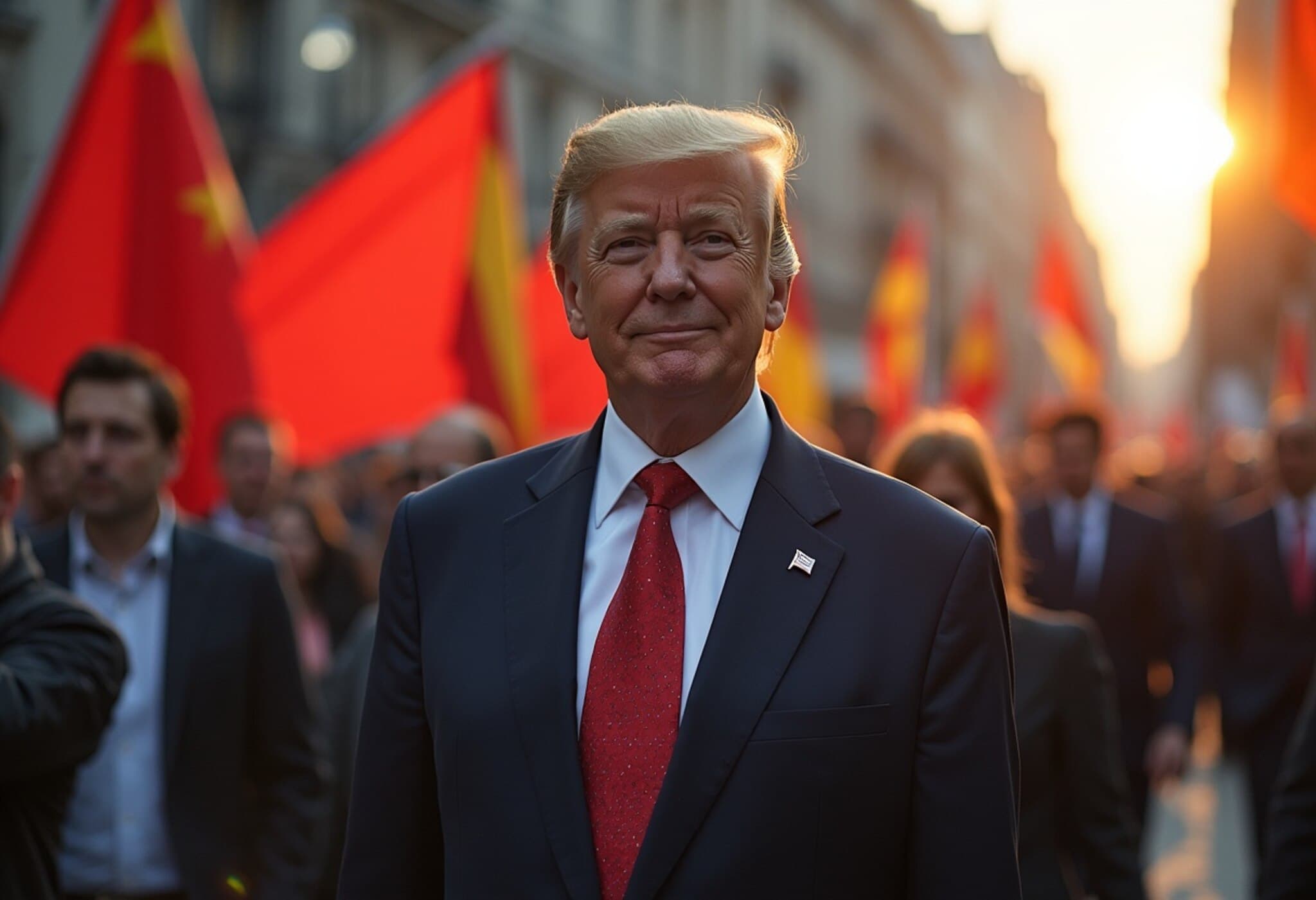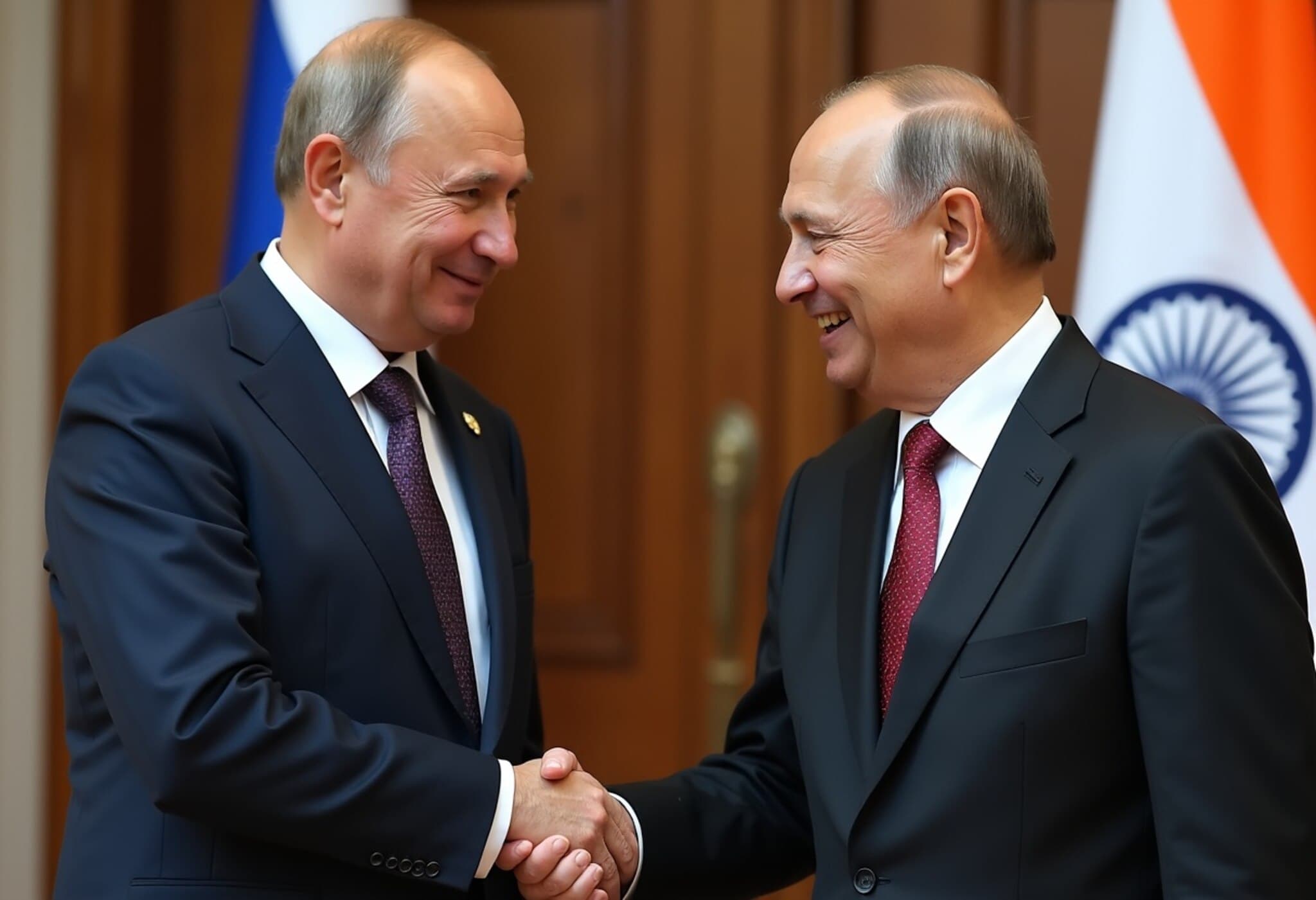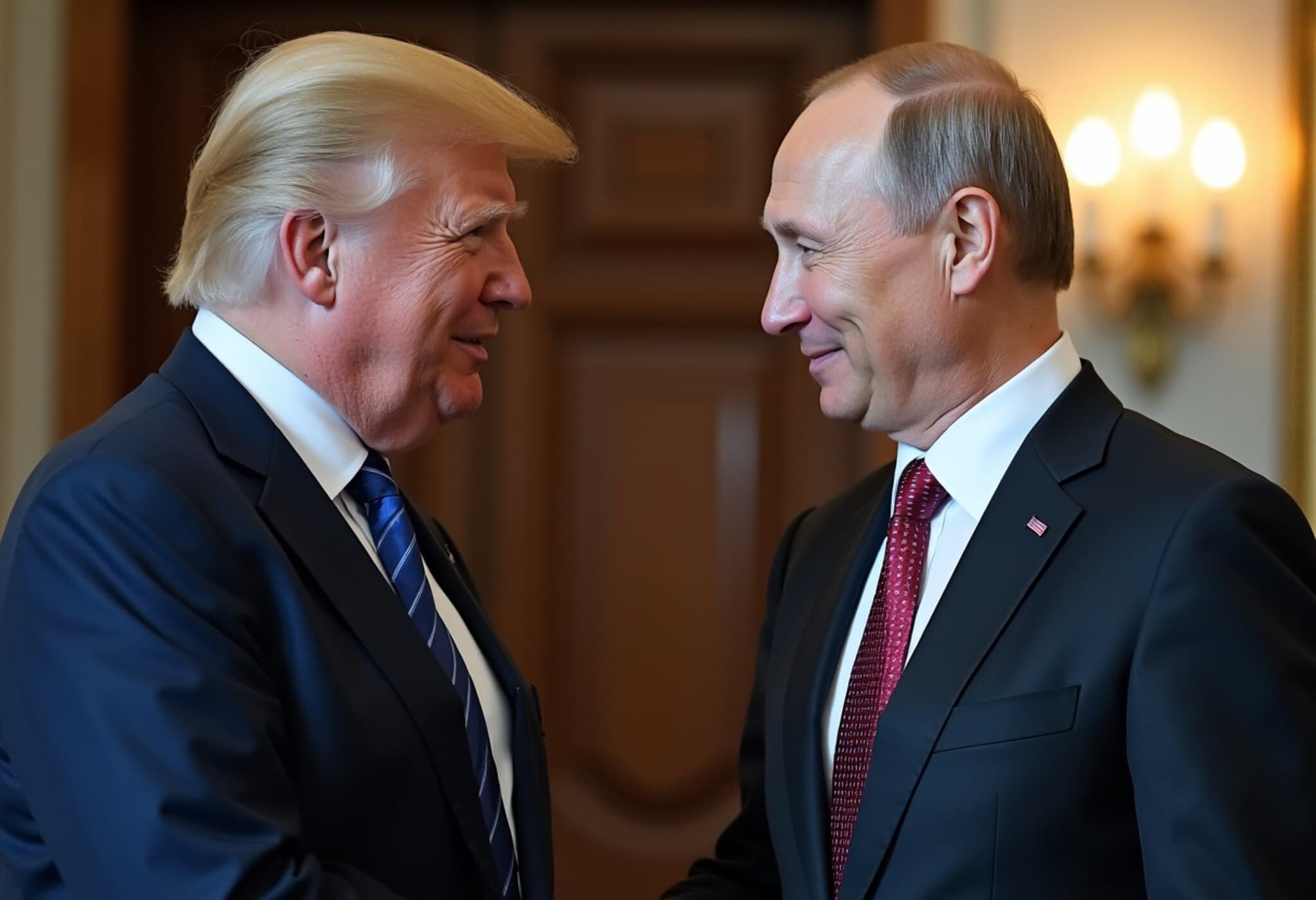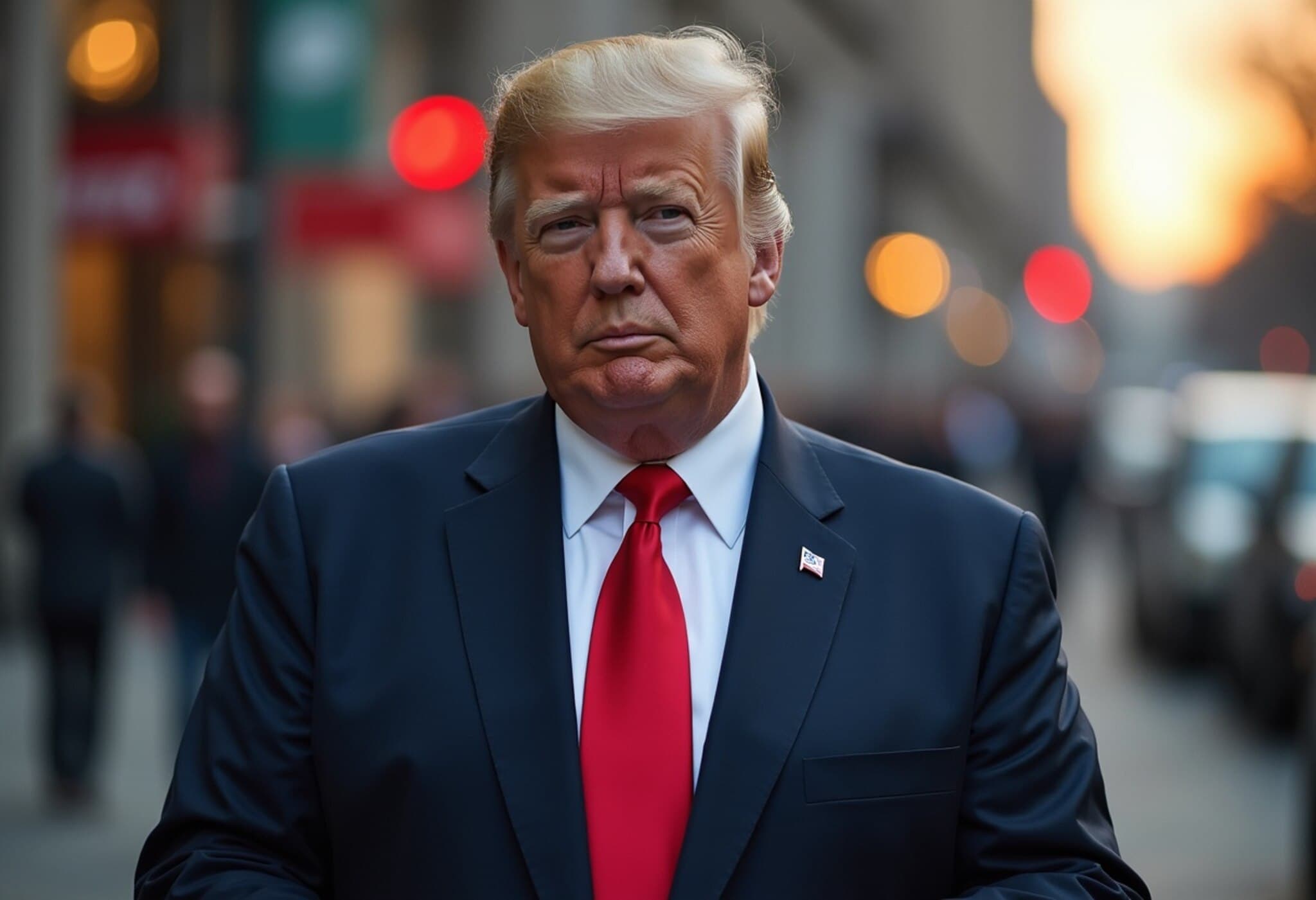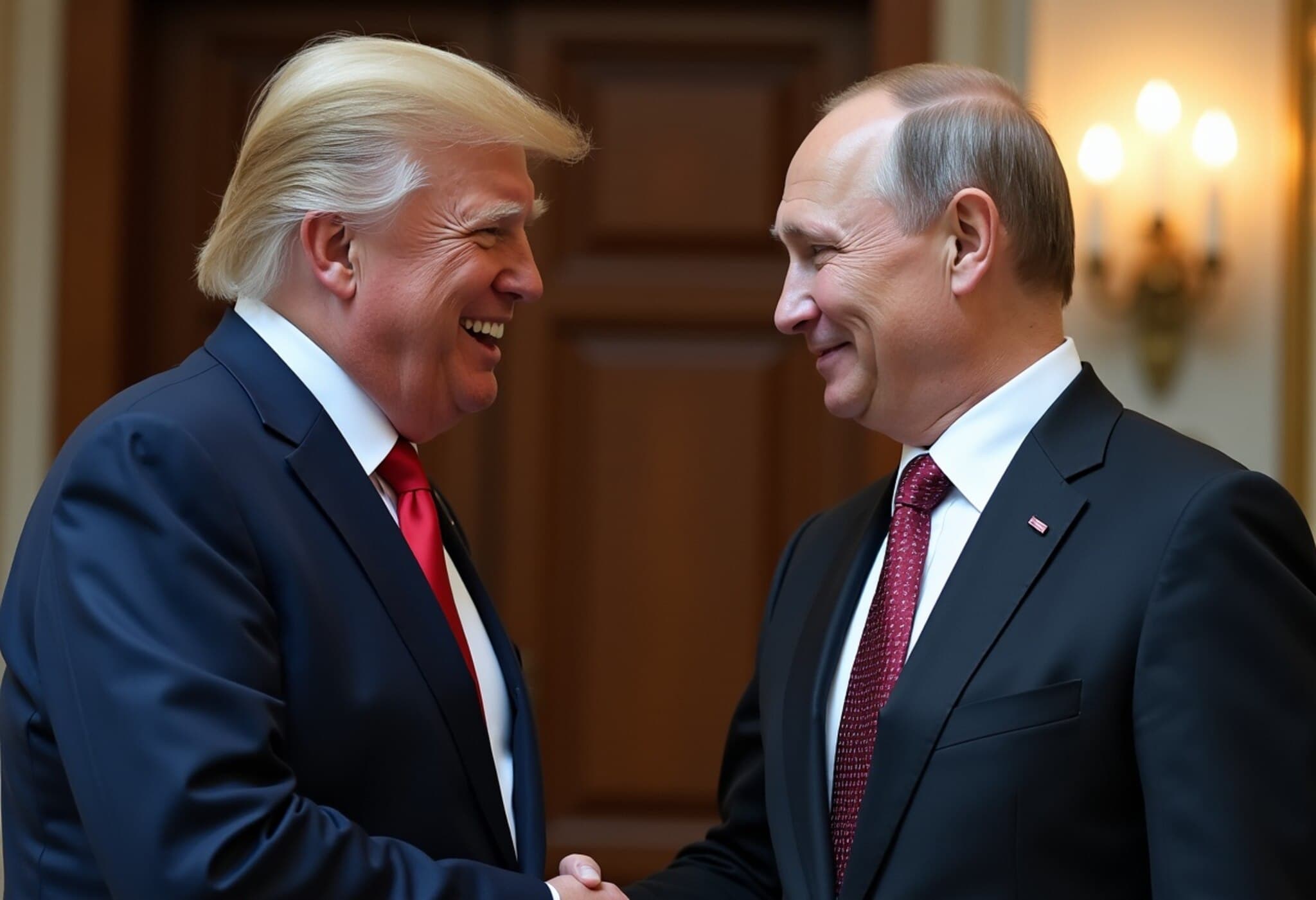Spain’s Diplomatic Tightrope: Challenging Washington on Defense and China
In a geopolitical landscape marked by cautious alliances and strategic calculations, Spain has emerged as one of the few European countries openly signaling resistance to certain U.S. demands—particularly under former President Donald Trump's administration. This stance has highlighted deep fissures in transatlantic ties as Madrid pushes back on defense spending expectations, military procurement, and its growing economic ties with China.
Spanish Defiance on NATO Defense Funding and Fighter Jets
Spain’s recent decision to forego purchasing the U.S.-made F-35 stealth fighter jets in favor of European alternatives marks a clear departure from expected transatlantic military cooperation. This move, announced by Spain’s defense ministry in mid-2025, coincides with Madrid’s refusal to pledge to NATO’s contentious new guideline calling for a defense budget equal to 5% of GDP by 2035—a target far above Spain’s current spending and economic comfort zone.
Such decisions have not gone unnoticed. Trump publicly criticized Spain’s choice at NATO’s annual summit, labeling the country’s economic situation precarious and threatening punitive trade measures. He accused Madrid of taking “a little bit of a free ride” on collective defense efforts and warned that Spain’s economy “could be blown right out of the water” if negative consequences ensued.
Yet, despite the Trump administration’s tough rhetoric, Spain has largely escaped tangible repercussions. Analysts attribute this to Spain’s status as a member of the European Union (EU), which negotiates trade collectively and thereby shields member states from unilateral U.S. tariffs—a stark contrast with nations like Switzerland, which face harsher direct tariffs.
Political Backdrop: Domestic Challenges and Strategic Calculations
Federico Santi, a senior Eurasia Group analyst, points to Spain’s fragile minority left-wing coalition as pivotal in understanding its foreign policy approach. Plagued by corruption scandals and political unrest, the coalition government under Prime Minister Pedro Sánchez appears to be leveraging high-profile foreign policy issues as a distraction from domestic troubles.
Sánchez, who has led since 2018 amidst opposition calls for his resignation, remains defiant and plans to contest the 2027 general election. His administration’s diplomatic posture—marked by open criticism of Trump and a pivot towards Europe and China—may be partly aimed at shoring up political capital at home.
Spain’s Historically Distinct Foreign Policy Outlook
Ignacio Molina, senior fellow at Madrid’s Elcano Royal Institute, adds essential historical context. Spain’s geopolitical outlook, mosaicked by the legacy of its 1898 war with the U.S., manifests as a more Eurosceptic, less Atlanticist orientation compared to other Western European nations. Although Spain strongly supports Ukraine amid ongoing conflict, its emphasis remains on EU integration and refugee support rather than NATO military commitments.
This nuanced stance reflects Spain’s broader discomfort with aligning too closely with Washington’s security agenda, especially given the ideological left-leaning government and widespread domestic disapproval of Trump’s policies—even within center-right circles.
Economic Engagement with China: A Source of Transatlantic Friction
Complicating U.S.-Spain relations further is Madrid’s increasing willingness to deepen economic partnerships with China. Spain stands out as one of Europe’s most China-friendly administrations, a move that has escalated tensions given the strategic rivalry between Beijing and Washington.
Criticism has mounted over Spain awarding technology contracts to Chinese firm Huawei, including in areas related to surveillance technology, sparking alarm among U.S. and European officials. Kristina Kausch of the German Marshall Fund describes Spain’s pivot as reflective of a broader European desire for “strategic rebalancing,” though she cautions this must be rooted in reciprocity to avoid destabilizing alliances.
Spain’s defiance on defense procurement and its China rapprochement underscore a broader European aspiration to cultivate independent military capabilities and economic autonomy. However, these moves carry risks, Kausch warns, potentially backfiring on Sánchez’s leadership and Spain’s standing both within NATO and the EU.
Looking Ahead: Risks, Rewards, and Regional Implications
- Spain’s unique position—straddling EU solidarity, NATO obligations, and independent foreign policy—highlights the complexities smaller powers navigate in great power rivalries.
- Domestic politics intertwine with international strategy, as Sánchez uses these foreign policy decisions to consolidate electoral support amid vulnerability at home.
- The U.S.-Spain relationship stands at a crossroads, where strategic patience may give way to increased pressure or recalibrated cooperation depending on evolving global dynamics.
- Spain’s China engagement raises critical questions about European unity and transatlantic coordination amid shifting global economic alliances.
As Spain continues to chart this unorthodox course, the broader European and American policy communities will be watching closely. Spain’s choices serve as a microcosm of emerging tensions and the evolving balance of power in the 21st century.
Spain's stance on defense spending, military procurement, and Sino-European relations exemplifies the challenges mid-sized powers face navigating between dominant alliances and sovereign interests. While Madrid’s approach signals a growing appetite for strategic autonomy and reflects domestic political realities, it simultaneously exposes Spain to potential economic and diplomatic retaliation. This evolving dynamic invites closer examination of the resilience and adaptability of NATO and EU frameworks in managing intra-alliance differences amid rising global competition.

